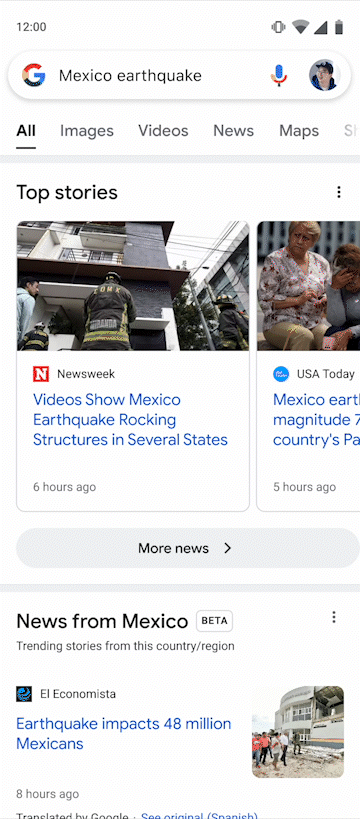One of the ways Google Search helps you make sense of the world is by connecting you with the widest range of perspectives, from everyday people to authoritative reporting. Today we’re announcing two new features that will help bring you even more viewpoints, so you can have additional context and choices when you search.
Find out what people are saying in online discussions and forums
Forums can be a useful place to find first-hand advice, and to learn from people who have experience with something you’re interested in. We’ve heard from you that you want to see more of this content in Search, so we’ve been exploring new ways to make it easier to find. Starting today, a new feature will appear when you search for something that might benefit from the diverse personal experiences found in online discussions.
The new feature, labeled “Discussions and forums,” will include helpful content from a variety of popular forums and online discussions across the web. For example, if you search for the best cars for a growing family, in addition to other web results, you’ll now see links to forum posts that include relevant advice from people, like their experience with minivans for transporting multiple children.
Today it will be rolling out for English users on mobile in the U.S. As with all Search features, we’ll continue to learn about whether people are finding this new feature valuable over time, and may update it in the future as we learn what’s most useful for people.

An example of the Discussion and forums feature
Breaking down language barriers in news
We’re also announcing a new way we’re helping to avoid language barriers when it comes to getting local perspectives on international news stories. Today when you search, you see results in your preferred language. In early 2023, we’ll launch a new feature that will give people a simple way to find translated news coverage using machine translation.
Say you wanted to learn about how people in Mexico were impacted by the more than 7 magnitude earthquake earlier this month. With this feature, you’ll be able to search and see translated headlines for news results from publishers in Mexico, in addition to ones written in your preferred language. You’ll be able to read authoritative reporting from journalists in the country, giving you a unique perspective of what’s happening there.

An example of how the news translation feature could work for showing translated headlines from publishers in Mexico.
This feature connects readers looking for international news to relevant local reporting in other languages, giving them access to more complete on-the-ground coverage and making new global perspectives available.
Building off our earlier translation work, we’ll be launching this feature to translate news results in French, German and Spanish into English on mobile and desktop.
Our goal is to help you find the most relevant information from across the web. These two new features will bring more perspectives to your search, helping you make informed choices and learn more about what’s going on around the world.














